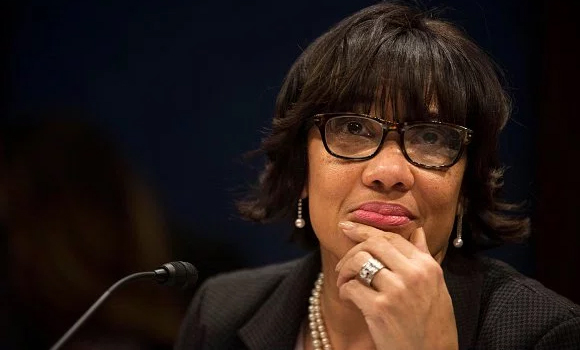 |
| Inman |
By Brandon Hall
(Email Him At WestMIPolitics@Gmail.com)
Writing for the Gongwer blog, Editor Zach Gorchow recently did a great job highlighting what could be on the horizon in Traverse City with the controversy swirling around indicted State Rep. Larry Inman.
Inman won re-election in 2018 by less than 400 votes, less than 1%.
Will he be vindicated? Will he resign? Be expelled? When would Governor Whitmer schedule a special election?
Check out the piece below:
"Embattled Rep. Larry Inman refuses to resign in the face of a federal indictment and repeated calls from House leaders that he quit. And now he faces a recall campaign, which if organizers display minimal competence, would seem to have a strong chance of qualifying for the ballot.
At this point, it does not appear the House will seek to expel Mr. Inman (R-Williamsburg), though with the trial now delayed indefinitely, any hopes House Speaker Lee Chatfield (R-Levering) might have had for a quick and tidy trial that ended with conviction and clear grounds for Mr. Inman's ouster are dashed.
It is of course possible that Mr. Inman could win acquittal and serve out his term, rendering all this moot. But right now, he is facing trouble on three fronts – in court, the Legislature and now the ballot – that would seem to make his departure/ouster a real possibility.
What is intriguing about all this is that if Mr. Inman faces a recall election or departs office for whatever reason anytime in roughly the next six months, election laws could heavily favor the Democrats flipping this seat in an ensuing special election.
Recall that Mr. Inman barely won re-election in 2018, by just 349 votes, or 0.74 percentage point. Traverse City has become heavily Democratic with nearby suburbs shifting as well. That's made the district a 50/50 type seat because the rest of Grand Traverse County remains solidly Republican. Both parties have been looking at this seat, the 104th House District, which exactly mirrors the county borders, as prime competition in 2020.
Now, with Mr. Inman's troubles, the possibility of a special election is on the brain.
Let's start with the resignation/expulsion scenario.
Either would trigger a special election. Democratic Governor Gretchen Whitmer gets to decide when to schedule it. The governor has almost total discretion in the scheduling of special elections.
Should Mr. Inman leave office by the end of the year, there's an obvious date Democrats would want the special general election to be held: March 10, 2020.
That's the date of Michigan's presidential primary. Democrats, you may have heard, have a competitive primary with a zillion candidates. Their voters will flood the polls. There is no serious organized opposition to Republican President Donald Trump for the GOP nomination. The electorate on March 10, 2020, will skew heavily Democratic. It should be a layup for the Democratic nominee for the 104th if there's a special general election on that date.
Republicans would surely squawk, but Ms. Whitmer could counter an expeditious election would assure the 104th goes a bare minimum of time without representation (unlike former Governor Rick Snyder's tendency to let seats remain vacant for almost a year) and holding the election on March 10 would mean the state picks up the cost. Holding it on another date would mean the local governments would have to pay.
If Mr. Inman remains in office well into 2020, however, that would take March 10 off the table as an election date, meaning a special election might occur in May or August, a more politically neutral playing field.
Then there's the recall scenario.
The good news for the GOP is that by law, the recall election, if it occurs, can only occur in May or August. March 10 is out.
The bad news for the GOP is their candidate in a recall election could be Mr. Inman with no way to block him.
In 2012, as majority legislative Republicans passed the right-to-work laws and other extremely controversial legislation, they also made sweeping changes to the recall process in a move to protect their members against possible recall retribution. Republican former Rep. Paul Scott had been recalled in 2011 and that was fresh on the party's mind.
The major change was to turn the recall from a "yes" or "no" on recalling the elected official, as it had long been, into an election among candidates. And as part of the effort to shield incumbents, one of the new provisions was to make the incumbent targeted by the recall the automatic nominee of their party in the recall election unless they decided to opt out and not run.
In other words, Mr. Inman could decide he will contest the recall and thus he is automatic nominee for the Republican Party in the 104th and by law there is no Republican primary. Mr. Inman would be the GOP nominee.
It's hard to imagine how Mr. Inman could survive a recall election embroiled in scandal, assuming the Democrats put forward a credible candidate and back that candidate with the necessary resources.
This is no idle matter. A Democratic win would shrink the House GOP's majority to 57-53 and mean the party needs just three seats for majority in the 2020 elections. Just getting two would probably be good enough because a 55-55 tie would mean shared power and kill the ability for legislative Republicans to overturn Ms. Whitmer's executive orders and for conservative groups to use the initiative petition as a means to end-run Ms. Whitmer on their priorities.
The universe of competitive seats in 2020 is relatively small, so the opportunity to lock in the 104th for either party (the winner of a special election would be the prohibitive favorite to win a full term in November 2020) in a special election would be huge."
 |
| Gorchow |
_________________________________________________________________

















